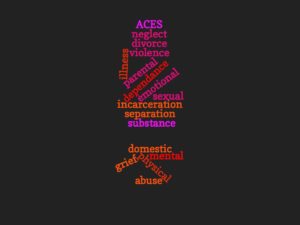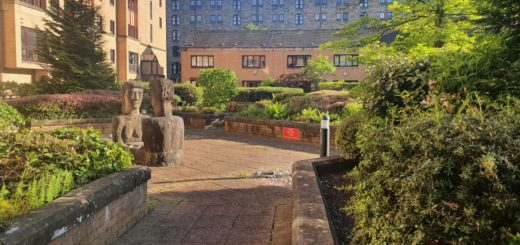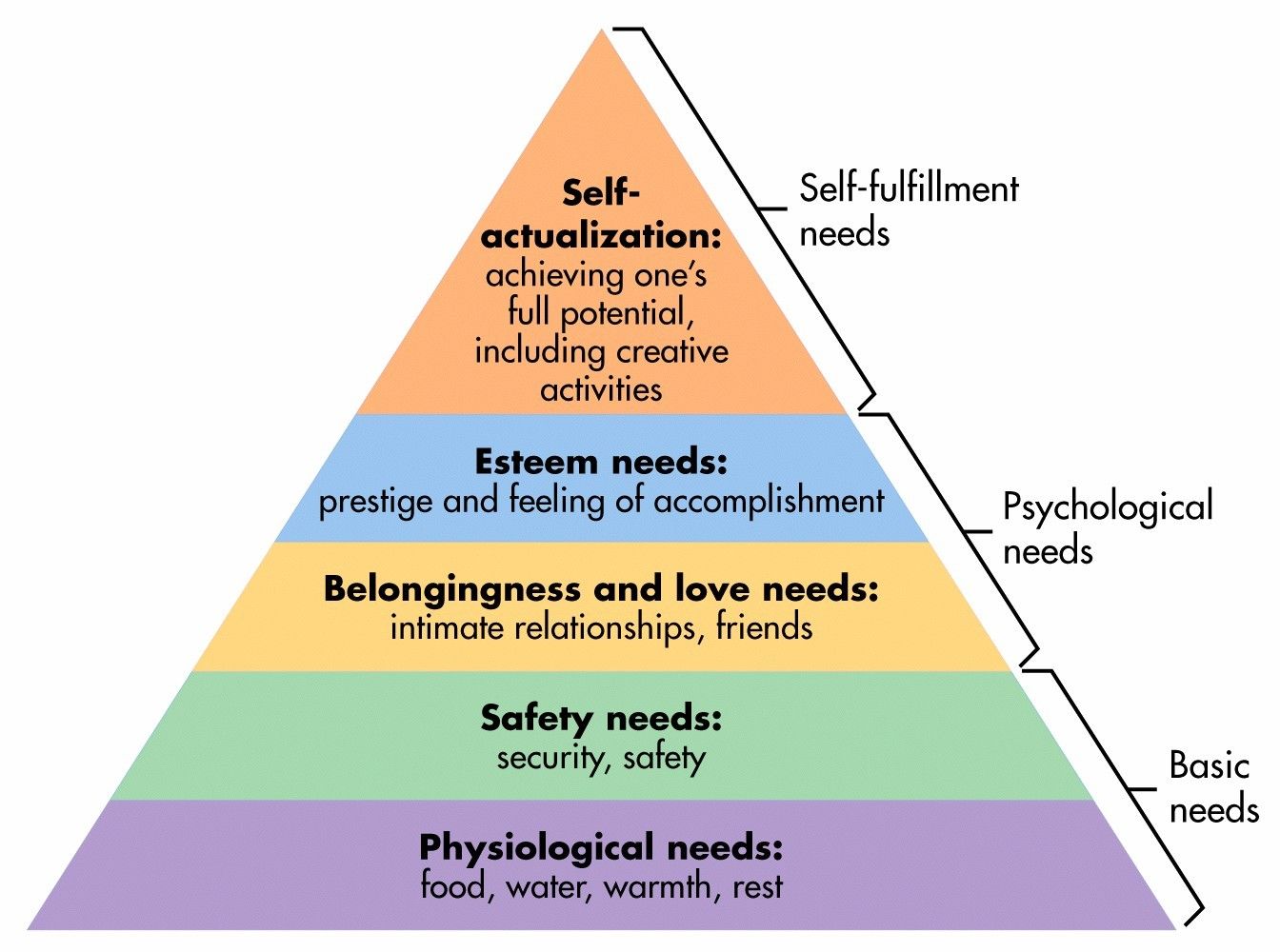ACES
Lets talk about ACES. ACES means adverse childhood experiences. This list includes but is not limited to physical, emotional or sexual abuse, parental mental illness, grief, substance dependance, neglect, parental incarceration, parental separation, divorce and domestic violence.

If we begin to look at adverse childhood experiences of inmates, we quickly learn that there is trauma in the childhoods of the people incarcerated. This does not mean this acts as an excuse for the harm they have caused, but we can begin to approach situations differently. Inmates can take responsibility for the crime they have committed but we can also begin to formulate a language that is trauma based to help these individuals in a way that is appropriate for them. ACES insist you can’t understand human development or needs or behaviour without placing it into context.
A politics of care: How the science of ACEs deepens our emotional vocabulary
Here, Suzanne Zeedyk is explaining through Benjamin Perks that emotional poverty and creating a language around it isn’t deemed necessary because society refuses to discuss it as a problem. If there is a teaching of ACES, people can perhaps be empowered whilst speaking about their adverse childhood experiences rather than trapped within them. This would create a shame free space where we could begin to debate the problem rather than avoiding it, after all, debate is better than silence.
There is language and discussion based on exclusion and Income poverty. Exclusion means that your race, gender or disabilities create barriers that exclude a child from basic safety, justice and opportunity. Income poverty means a child does not have access to the basic means to survive financially. We are socially conscious about these two terms and although there is still confusion about the best way to tackle these problems, we as a society have legitimatised them. When it comes to emotional poverty, which is the absence of basic nurture due to ACES, this has not been legitimised and there isn’t a language to open up discussions on how to begin tackling these issues. Debate is always better than silence. As a society we marginalise the issue of ACES because it doesn’t apply to us. Natalie Burke Harris argues that we marginalise this issue because it does apply to us, but we other this issue so we don’t have to deal with our own connection to it.
Michelle Brennan Jones in the video below discusses ACES in the Dundee and Angus ACES hub and the direct empowerment she has felt from learning about specific ACES she faced in childhood to overcome substance misuse. She speaks about growing up in the outskirts of Glasgow and spending time sitting on the stairs in her close as she was too scared to go into the house due to her parents fighting and into school because they were not safe spaces to her. She speaks about income poverty not being a direct ACE because she believes you can be poor and have a deep and loving connection with a child, which I also agree with. When speaking about ACES I believe safety is a twin conversation. Young people experiencing ACES often do not feel safe in their environment due to the circumstances they find themselves in. This leaves mistrust in adults and others and therefore it is difficult to find a safe place to feel nurtured in. She is able to heal through learning about ACES and in this video speaks very personally about the ACES she has faced and how she began to overcome them in her adult life, which she admits wasn’t easy.
To me, ACES need to be a key starting point when we speak about people in prisons. A practice that involves conversations around ACES will ultimately lead to a practice of care. These experiences are a social issue and allow us to humanise others who experience them. Crime and ACES are not a separate issue. So it is about time we found a language that begins a conversation to support young people and people who are incarcerated in an individual way. Although I’m not entirely sure on how to do this, everything must start somewhere.
It’s about time we started listening.
Resources-
https://suzannezeedyk.com/politics-of-care-aces-emotional-vocabulary/
https://www.youtube.com/channel/UCQt4SUMkPyBHZztdOxaBJqA
https://www.youtube.com/watch?v=L66PCqIurqg&t=34s
https://cotsonline.org/wp-content/uploads/2018/04/Trauma-Informed-Design.BOD_.pdf



Hey Holly!
Thanks so much for your post,
I just wanted to send you over this scottish health survey resource as it has a lot of really usefull data that looks at how these adverse childhood experiences can have an effect on people within Scotland
https://www.gov.scot/publications/scottish-health-survey-2019-volume-1-main-report/pages/11/#:~:text=In%202019%2C%20just%20over%20seven,%25%20and%2016%25%20respectively).
Thanks Jack! Ive looked over this data, how interesting. Its always so interesting to think about the ways ACES affect not only us but the people in our communities in Scotland!
Holly